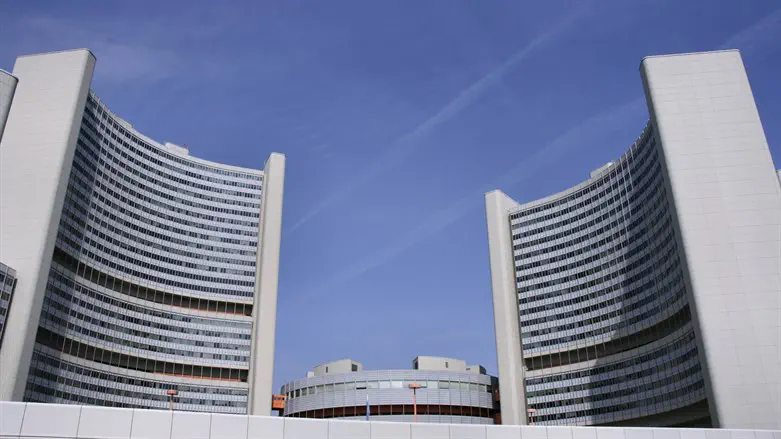
The Governments of France, Germany, the United Kingdom and the United States on Saturday released a statement in which they welcomed the International Atomic Energy Agency (IAEA) Board of Governors’ adoption of a resolution on Iran.
The resolution, which was passed on Thursday, urged Iran to address longstanding questions in its investigation into uranium particles detected at two undeclared locations. These sites, Varamin and Turquzabad, are suspected to have been part of undeclared nuclear activities.
The board’s resolution called on Iran to provide “technically credible explanations” for the particles and clarify the origin and current location of the nuclear material, stating this would help confirm that “Iran’s nuclear program is exclusively peaceful.”
In Saturday’s statement, the four countries said, “We, the Governments of France, Germany, the United Kingdom, and the United States welcome the IAEA Board of Governors’ adoption of a resolution on Iran. The resolution responds to Iran’s continued failure to provide the IAEA the information and cooperation needed to clarify long outstanding issues relating to undeclared nuclear material detected at multiple locations in Iran. These issues are central to the Agency’s ability to provide assurance of the exclusively peaceful nature of Iran’s nuclear program. Iran is legally obligated under its Nuclear Non-Proliferation Treaty (NPT) Safeguards Agreement to cooperate fully with the IAEA and account for all nuclear material and activities.”
“In its last resolution in June, the Board stated that if Iran failed to provide the necessary, full and unambiguous cooperation with the Agency to resolve all outstanding safeguards issues and implement the safeguards obligations stemming from its Comprehensive Safeguards Agreement, further action would be necessary. This follows the Board’s repeated requests over several years calling on Iran to resolve these issues. Despite the Director General’s continued efforts to engage in a substantive dialogue, Iran has not provided the information or cooperation needed to address them and has instead responded to the Board’s calls with threats and provocations. Since 2019, the Agency has sought to clarify the outstanding safeguards issues and make progress. For nearly five years now, Iran has consistently failed to implement the commitments it has made to the Agency,” they added.
“With this new resolution, the IAEA Board renews its statement that it is essential and urgent that Iran resolve these issues, as well as its support for the Agency’s efforts to engage Iran to that end. It asks the Agency to produce a comprehensive and updated assessment which will summarize the Agency’s findings over five years of investigations. We hope Iran will take the opportunity between now and that report to finally provide the information and cooperation needed to resolve these issues, so that the Agency is able to provide assurance that Iran’s program remains exclusively peaceful, and the Board can close consideration of this matter. If it does not, it will be important that the Board remain engaged to meet the challenge that Iran’s continued refusal to meet its NPT-related nuclear verification obligations would present, including to the credibility of the global IAEA safeguards regime.”
“We note with serious concern Iran’s announcement on 22nd November 2024 that, instead of responding to the resolution with cooperation, it plans to respond with further expansion of its nuclear program in ways that have no credible peaceful rationale. We expect Iran to reengage on the path of dialogue and cooperation with the Agency,” the resolution concluded, in a comment referring to Iran’s announcement on Friday that it plans to launch a "significant series of new and advanced" centrifuges in response to the IAEA resolution.
The IAEA resolution was submitted even after the head of the UN nuclear watchdog, Rafael Grossi, acknowledged a "concrete step" by Iran to limit its uranium stockpile.
Iran had proposed halting the expansion of its stockpile of uranium enriched to 60% purity—close to the 90% threshold required for weapons-grade material—on the condition that Western powers abandon the efforts to pass the IAEA resolution.
The resolution aims to pressure Iran into negotiating new restrictions on its nuclear program, following the collapse of the 2015 nuclear deal which formally ends in October 2025, even though its terms have been widely breached since the US withdrew in 2018 under then-President Donald Trump.
The Biden administration tried, unsuccessfully, to revive the 2015 deal. The negotiations reached a stalemate in September of 2023, after Iran submitted an unsatisfactory response to a European Union proposal to revive the deal.

